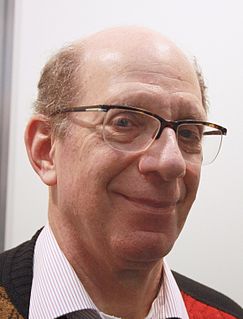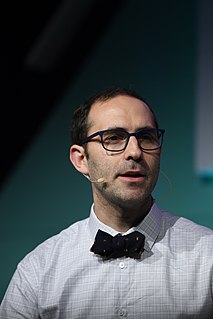A Quote by Paul Allen
Even though Traf-O-Data wasn't a roaring success, it was seminal in preparing us to make Microsoft's first product a couple of years later.
Related Quotes
PowerPoint presentations, the cesspool of data visualization that Microsoft has visited upon the earth. PowerPoint, indeed, is a cautionary tale in our emerging data literacy. It shows that tools matter: Good ones help us think well and bad ones do the opposite. Ever since it was first released in 1990, PowerPoint has become an omnipresent tool for showing charts and info during corporate presentations.
Microsoft is in a court battle with the Department of Justice. The DOJ is saying, "We want information from your data center in Ireland. It's not about a US citizen, but we want it." Microsoft said, "OK, fine. Go to a judge in Ireland. Ask them for a warrant. We have a mutual legal-assistance treaty. They'll do it. Give that to us, and we'll provide the information to you in accordance with Irish laws."
The key to your success, to my success, to everyone's success is determined by our daily agenda. What you and I do every day is either making us or breaking us, we're either preparing or repairing. So when somebody says, 'John, I want to be a success. Where do I start?' I say, It's very simple. Start with today.
I got to fight the greatest-of-all-time in my weight division - not once but twice. I was watching this guy when I was 16 years old when I first started kickboxing. I wanted to fight Aldo in a kickboxing match. A couple years later, I came to MMA and wanted to fight him. 10 years later, I got to fight the man twice.
We all have direct experience with things that do or don't make us happy, we all have friends, therapists, cabdrivers, and talk-show hosts who tell us about things that will or won't make us happy, and yet, despite all this practice and all this coaching, our search for happiness often culminates in a stinky mess. We expect the next car, the next house, or the next promotion to make us happy even though the last ones didn't and even though others keep telling us that the next ones won't.






























